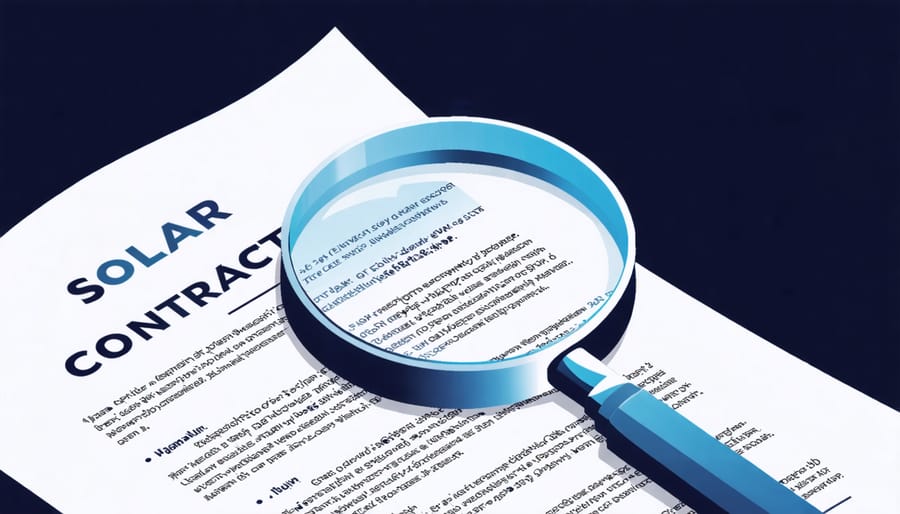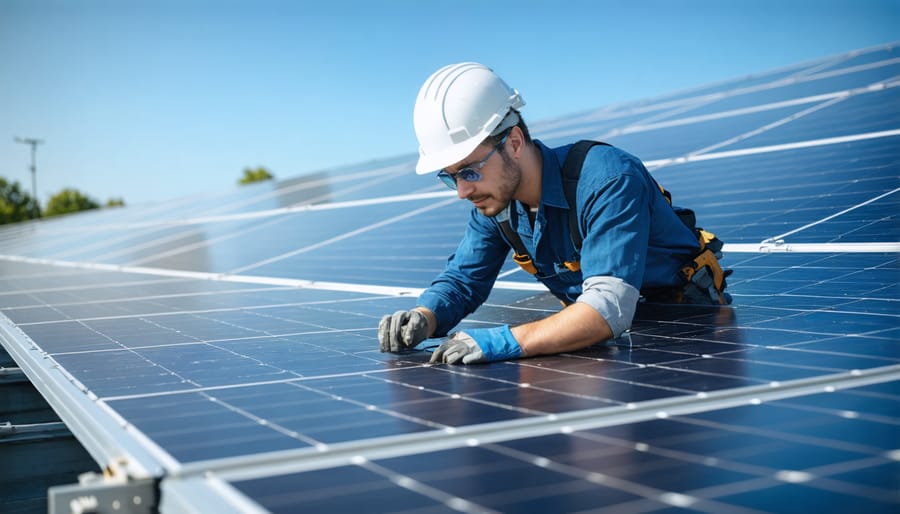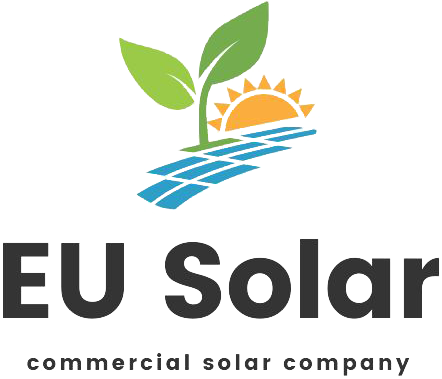Protect your solar investment by asking potential providers the right questions before signing any agreements. When evaluating energy-as-a-service solutions, thorough due diligence separates industry leaders from unreliable vendors. Understanding system specifications, warranty terms, and performance guarantees forms the foundation of a successful solar partnership.
Professional solar companies welcome detailed inquiries about their certification credentials, installation processes, and long-term maintenance plans. Your questioning should cover four critical areas: technical capabilities, financial terms, operational track record, and service guarantees. This comprehensive evaluation ensures alignment with your organization’s energy goals while minimizing risk exposure.
This guide outlines the essential questions that reveal a solar provider’s true expertise, financial stability, and commitment to customer success. Whether you’re exploring rooftop installations or large-scale solar arrays, these carefully curated inquiries will help you make an informed decision and secure optimal returns on your renewable energy investment.

Financial and Contract Terms
Cost Structure and Payment Terms
Understanding the cost structure and payment terms is crucial for businesses looking to maximize solar investment returns. Ask these essential questions about financial arrangements:
What is the total system cost, and what components are included in this price? Request a detailed breakdown of equipment, installation, maintenance, and any additional fees. Understand whether permits, interconnection costs, and utility upgrade expenses are included.
How are payments structured? Investigate available solar financing options, including purchase, lease, or power purchase agreement (PPA) terms. For PPAs, inquire about rate escalators and duration.
What incentives, tax credits, or rebates are available? Ensure the company can assist with application processes and documentation. Ask about timing for incentive payments and how they affect the overall project cost.
Are there any performance guarantees or production warranties? Understanding compensation mechanisms for underperformance is crucial. Request clarity on maintenance costs and whether they’re included in the contract.
What are the payment milestones? Establish when payments are due during the project timeline and what conditions must be met for each payment. Inquire about deposit requirements and final payment terms.
Are there any potential additional costs? Discuss scenarios that might lead to price adjustments and how they’re handled contractually.
Contract Duration and Exit Clauses
Understanding contract duration and exit provisions is crucial when evaluating solar service agreements. Start by asking about the standard contract length and whether flexible terms are available to align with your organization’s planning horizon. Typical solar agreements range from 15 to 25 years, but some providers offer shorter options.
Inquire about early termination conditions and associated fees. A well-structured agreement should include clear provisions for early exit, including specific circumstances where termination penalties might be reduced or waived. Ask whether the contract includes performance-based termination rights if the system consistently underperforms.
Property transfer rights are equally important. Request details about the process of transferring the solar agreement to new property owners or tenants if you relocate or sell your facility. Understanding these procedures beforehand can prevent complications during ownership transitions.
Consider these specific questions:
– What is the minimum contract duration?
– Are there milestone-based exit options?
– What are the exact early termination fees and how are they calculated?
– Can the agreement be transferred to another entity?
– What assistance does the provider offer during agreement transfers?
– Are there buy-out options at specific intervals?
Remember to have your legal team review all contract terms, particularly the exit clauses and transfer rights, before signing. This ensures your organization maintains operational flexibility while benefiting from long-term solar energy solutions.
Technical Performance and System Design
System Performance Guarantees
Understanding system performance guarantees is crucial when evaluating solar providers. Start by asking about their production guarantee – what minimum energy output levels do they commit to annually? Request specific numbers rather than vague assurances, as this directly impacts your return on investment.
Inquire about their performance monitoring systems and how frequently they assess system output. A reputable provider should offer real-time monitoring capabilities and regular performance reports. Ask how they calculate expected energy production and what factors they consider in their estimates, including seasonal variations and potential degradation over time.
Critical questions should address compensation mechanisms for underperformance. What happens if the system fails to meet guaranteed production levels? Look for providers who offer clear, written commitments to compensate you for any shortfall, whether through direct payments or additional energy credits.
Understand how the company handles efficiency commitments. What is their guaranteed panel degradation rate? Industry standards typically warrant that panels will maintain 80% or more of their rated output after 25 years, but superior providers might offer better guarantees.
Ask about their response time for performance issues and the specific steps they take to remedy underperformance. This should include:
– Timeline for investigating performance issues
– Process for system repairs or adjustments
– Documentation of all corrective actions
– Regular system optimization procedures
Finally, request examples of how they’ve handled performance guarantee claims with other clients. This provides insight into their commitment to maintaining system efficiency and their reliability in honoring guarantees.
Monitoring and Reporting
Understanding how your solar installation performs is crucial for maximizing your return on investment. Ask potential solar providers about their solar monitoring systems and reporting capabilities to ensure you’ll have visibility into system performance.
Key questions to discuss include:
“What type of monitoring platform do you provide, and how can I access it?”
Request details about the user interface, mobile accessibility, and real-time monitoring capabilities. Understanding how you’ll interact with performance data helps ensure it meets your operational needs.
“What specific performance metrics will I be able to track?”
Ensure the system tracks essential metrics like energy production, consumption patterns, cost savings, and environmental impact. This data is vital for validating ROI and identifying optimization opportunities.
“How frequently are performance reports generated?”
Establish the reporting schedule and format. Monthly reports are standard, but some providers offer customizable reporting frequencies and formats to align with your business requirements.
“Will I receive alerts about system issues or underperformance?”
Confirm the provider’s approach to system alerts and their response protocol. Automated notifications help prevent extended periods of reduced efficiency.
“Who owns the performance data, and how long is it stored?”
Understand data ownership, storage duration, and export capabilities. This information is crucial for long-term performance analysis and compliance requirements.
“Can the monitoring system integrate with our existing building management systems?”
For larger facilities, integration capabilities ensure seamless operation and comprehensive energy management across your infrastructure.


Maintenance and Support Services
Maintenance Responsibilities
Understanding the maintenance responsibilities and support services is crucial for long-term solar system performance. Ask about the frequency of scheduled maintenance visits and what specific tasks are performed during these inspections. Inquire whether the company provides remote monitoring services to detect performance issues proactively and how quickly they respond to system alerts or malfunctions.
Request detailed information about their response time guarantees for different types of issues, from routine maintenance to emergency repairs. Clarify whether they maintain a local service team or rely on third-party contractors for maintenance work. This can significantly impact response times and service quality.
Determine the scope of maintenance coverage included in your agreement. Ask specifically about:
– Panel cleaning frequency and procedures
– Inverter maintenance and testing protocols
– System performance monitoring and reporting
– Warranty claim handling and support
– Emergency repair procedures and timelines
– Cost structure for services outside the maintenance agreement
Confirm whether the company maintains detailed maintenance records and provides regular performance reports. Ask about their preventive maintenance program and how they handle equipment upgrades or replacements when needed. Understanding these aspects helps ensure your solar investment remains protected and operates at peak efficiency throughout its lifecycle.
Finally, inquire about any additional costs that might arise from maintenance activities and whether they offer extended maintenance packages beyond the standard warranty period.
Support and Emergency Response
Understanding a solar provider’s support system and emergency response protocols is crucial for maintaining continuous operations. Ask about their customer service hours and availability, including whether they offer 24/7 emergency support. Inquire about their average response time for both routine maintenance requests and emergency situations.
Request details about their incident escalation procedures and whether they have dedicated technical support teams. Ask about their remote monitoring capabilities and how quickly they can detect and respond to system performance issues. It’s important to understand if they have local service teams or if they rely on third-party contractors for maintenance and repairs.
Discuss their preventive maintenance schedule and how they handle emergency repairs outside of regular business hours. Ask about their spare parts inventory management and how quickly they can source replacement components when needed. Understanding their warranty claim process and response protocols for equipment failures is essential.
Verify if they provide performance monitoring tools and whether you’ll have access to real-time system data. Ask about their communication protocols during planned maintenance or system downtimes. Additionally, inquire about their disaster recovery procedures and how they handle force majeure events that might affect your solar installation.
Request examples of their emergency response track record and ask for references from existing clients who have experienced their support services. Understanding these aspects ensures you’re partnering with a provider capable of maintaining your solar investment effectively.
Provider Credentials and Track Record
Experience and Certifications
Understanding a solar company’s experience and qualifications is crucial for ensuring reliable service and long-term performance. Ask about their years of experience specifically in commercial solar installations and request details about completed projects similar to yours in scale and complexity. Inquire about their track record with specific solar technologies and equipment brands they regularly work with.
Verify their professional certifications, particularly those from the North American Board of Certified Energy Practitioners (NABCEP). This certification represents the industry’s highest standard of expertise and professionalism. Additionally, ask about state-specific licensing requirements and ensure they maintain current credentials.
Insurance coverage is equally important. Request proof of comprehensive business liability insurance and worker’s compensation coverage. The company should carry adequate coverage to protect your investment and property during installation and maintenance work. Ask about specific coverage amounts and any additional insurance requirements for your jurisdiction.
Consider requesting references from similar businesses and investigating their standing with industry associations. Membership in professional organizations often indicates commitment to industry best practices and ongoing education in solar technology advancements.
References and Case Studies
Request detailed information about similar projects the solar company has completed, particularly those matching your facility’s size and energy requirements. Ask for specific case studies that demonstrate their experience with businesses in your industry or buildings with comparable characteristics. These references should include performance data, energy savings achieved, and ROI metrics from existing installations.
Seek direct contact information for at least three recent clients who can provide firsthand feedback about their experience. When speaking with references, inquire about the company’s project management capabilities, communication effectiveness, and their responsiveness to maintenance requests or technical issues. Key questions for references should address installation timeline adherence, system performance relative to initial projections, and overall satisfaction with the service provided.
Additionally, ask about any challenges encountered during installation or operation and how the company addressed them. This information will give you valuable insights into the provider’s problem-solving capabilities and commitment to customer satisfaction. Consider requesting a site visit to an operational installation similar to your proposed system to observe the equipment and installation quality firsthand.
Selecting the right solar service provider is crucial for the long-term success of your renewable energy investment. By asking thorough questions about financial terms, technical specifications, installation processes, and ongoing maintenance, you can make an informed decision that aligns with your organization’s goals and requirements.
Remember to evaluate multiple providers, comparing their responses to these key questions. Pay particular attention to their track record, financial stability, and commitment to customer service. Documentation of past projects, references from similar organizations, and detailed performance guarantees should factor heavily into your decision-making process.
Create a standardized evaluation matrix using the questions discussed throughout this guide to objectively compare different providers. Consider seeking legal counsel to review contract terms and ensure your interests are protected. Additionally, request detailed proposals that include energy production estimates, financial projections, and maintenance schedules.
Take time to visit existing installations and speak with current clients about their experiences. This firsthand information can provide valuable insights into the provider’s reliability and service quality. Finally, ensure all agreements are thoroughly documented and that you understand every aspect of the partnership before proceeding.
By following these guidelines and asking comprehensive questions, you’ll be better positioned to select a solar service provider that can deliver reliable, cost-effective renewable energy solutions for your organization’s needs.

